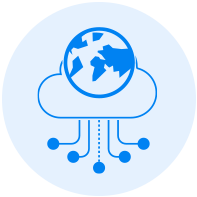
Show Me the Money: ROI of Better Data Management
Urjanet Inc | July 11, 2016 | Energy & Sustainability
In order to gain buy-in for a new initiative, a corporate sustainability professional must present a clear-cut, measurable case. But with all the rapidly evolving moving parts in energy and sustainability, it can be difficult to zero in on the specific financial benefits of your program strategies. What can help with this? Managing your data.
Immediate Benefits of Better Data Management
Comprehensive, well-managed, and actionable data can help sustainability professionals achieve the following gains on investment for their programs:
- Improving sustainability performance: This is a key goal of any sustainability program; however, achieving this goal requires understanding where you stand currently to capture a baseline, set reasonable goals and measure progress toward those goals — all of which requires a comprehensive view of complete and accurate data.
- Reducing costs: Quality data can help reduce costs associated with sustainability programs in two ways. First is the costs associated with inaccurate or incomplete data. Second is the ability to identify new efforts that can help reduce business costs that go straight to the bottom line.
- Communicating progress and performance to stakeholders: How well is your program doing? This question is always top of mind for stakeholders, and answering it as thoroughly as possible requires producing regular sustainability reports that use data to clearly demonstrate what you’ve done and the impact of those activities.
- Maintaining transparency: Internal stakeholders aren’t the only ones who care about corporate sustainability programs. The general public (including potential customers and investors) does too. Meeting the public’s expectation for transparency requires using data to populate external reporting frameworks such as:
- Carbon Disclosure Project (CDP)
- Global Reporting Initiative (GRI)
- Dow Jones Sustainability Index (DJSI)
- International Integrated Reporting Council (IIRC)
- Sustainability Accounting Standards Board (SASB)
- Initiating new projects: Identifying the best new projects to take on — whether it’s improving in areas of weakness, capitalizing on new opportunities or playing up past successes by going after low-hanging fruit — requires a strong understanding of data from across the organization.
- Engaging employees: Having quality data in place can make a big difference in helping employees across all departments do their jobs more effectively. When you can use data to demonstrate the value of your sustainability program for others, those employees will have a greater incentive to help realize those benefits.
- Remaining compliant and protecting license to operate: As new laws regarding energy compliance continue to go into effect, reporting on relevant data — which can include everything from utility, waste and water consumption to building occupancy and use details — will become increasingly critical.
Downstream Benefits of Better Data Management
Beyond the must-haves like increased accuracy and efficiency, improving data management can also produce positive returns on investment downstream.
- Uncovering savings opportunities in utility bills: When leading media company Cox Enterprises implemented Urjanet, it gained a comprehensive view of billing and electricity consumption across 40,000 energy accounts and 200 utility providers. This insight led to a savings of $4,000 right off the bat and savings between 10-30% in various markets over the long term.
- Enabling faster responses to RFPs that require sustainability data: The speed at which you respond to RFPs is critical, as it reflects on the responsiveness of your company to potential clients. The faster you can respond, the less your chances of another company winning the job. Having a strong data management program that enables you to pull the necessary sustainability data quickly can make all the difference.
- Attracting and retaining top talent: The better the experience you can provide for employees and the more you can enable them to tie their actions to business value, the more satisfied they’ll be. In turn, employee satisfaction leads to higher retention and attraction of new hires. Improved data management simplifies processes and empowers sustainability professionals to be more strategic, thus contributing to this satisfaction.
- Improving market position due to transparency: A strong data management program makes it easy to release regular sustainability reports to maintain a high level of transparency. This transparency can help improve market position with both investors and the public as they increasingly choose to vote with their dollars.
- Increasing access to capital: According to research from Ernst & Young, companies with good sustainability programs tend to have lower Zingales Index scores, which equates to fewer capital constraints. The same research finds that sustainable companies represent lower-risk investments for potential equity partners.
- Enhancing operational efficiency and decision-making: Automating data management can lead to more optimized decision making. This is because having more accurate and timely data allows you to devote more time to strategic program activities rather than to tactical activities like gathering and standardizing the data.
Have a fear of missing out on these gains? Don’t fret. Grab a free copy of our eBook: The Corporate Sustainability Professional’s Guide to Better Data Management to learn more.
Related Resources:
- Successful Energy Data Management – Utility Data Is Key
- What Industry Leaders in Sustainability Are Doing Right
- Solutions Sheet: Utility Interval Data
If you like what you’re reading, why not subscribe?
About Urjanet Inc
Urjanet, the global leader in utility data aggregation, simplifies how organizations access and use utility data, enabling them to focus on their business. Our technology collects, processes, and delivers data from over 6,500 electric, natural gas, water, waste, telecom, and cable utilities worldwide.
You May Also Like
Support Business Continuity by Embracing ESG
Honor Donnie | March 18, 2022 | Energy & Sustainability
